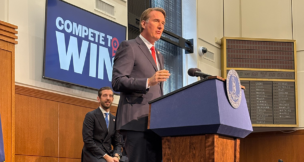Small business and the affordable care act employer mandate delay
Small business and the affordable care act employer mandate delay
In early July, the Patient Protection and Affordable Care Act (PPACA) “employer mandate” — which requires employers with more than 50 employees to provide health insurance to their employees beginning in 2014 — was delayed by the Obama administration for one year. This is to provide more time for employers to comply with reporting requirements under the new law. The delay will permit those businesses that choose not to provide health insurance next year to escape a penalty of up to $3,000 per employee. The individual mandate, however, will begin in 2014. Employees who would otherwise be covered would then be required to purchase insurance on the “individual” market, through state exchanges, with federal tax credits available for low- to middle-income persons.
There is an old axiom in economics: “There is no free lunch.” So now a cost that was to be borne in large part by business will be borne by the individual and the federal government through the tax credits for 2014. One wonders if a possible strategy for small business, which opposed the law at the time it was passed, is to delay the mandate, so as to live to fight another day, and therefore lobby to modify the law such that the employer mandate is taken out or substantially revised before 2015, when the mandate would go into effect.
Certainly, small businesses at the margin of 50 employees can make the best argument. Many small businesses have already indicated that they would put employees on a part-time basis to circumvent the penalty, which is assessed only on full-time employees not offered affordable health insurance by the employer. This is, in effect, a wage decrease, unless the worker finds supplemental work with another employer.
Businesses could also favor hiring outside independent contractors to get some employees “off the books.” Some small-business owners have even suggested that they will pay the fine for each full-time employee not covered, as this would be cheaper than the health insurance premiums they would need to pay. They would then tell the employee to go the state exchanges to get their own insurance, subsidized by the federal government tax credits. This would make a lot of sense for small businesses that have many low-wage employees who would get the largest tax credits. Many small businesses provide health insurance to attract highly skilled talent and remain competitive in the job market and will continue to do so even absent the mandate. However, there will be a range of small businesses that compete for low-wage, low-skilled employees that may not be able to afford the coverage for these employees.
PPACA was not bipartisan legislation. It did not receive even one Republican vote in either the House or the Senate. Based upon current surveys, the law is even more unpopular now than when it was signed into law, and there have been enough bumps in the road already for the argument to be made that it is either unworkable and should be repealed, which is unlikely, or that major parts of it need to be changed. Certainly, the U.S. Chamber of Commerce, can make the push, as it has in a published a report in June 2013 entitled “Health Care Solutions from America's Business Community: The Path Forward for U.S. Health Reform”. This report notes many of the consequences stated above related to the employer mandate.
The big issue addressed through the report is the imprecise knowledge of the cost of health insurance for 2014 and beyond. Because the federal government has defined a set of generous Essential Health Benefits (EHB) as well as other requirements for health insurance policies, their pricing into health insurance cost is unknown and potentially unaffordable for many small businesses if some projections are correct. Small businesses want the flexibility to offer health insurance that they can afford. At the very least, a phase-in of the requirements is preferred.
At least 2014 will give small business an opportunity to make its case, perhaps, with the outcome of the 2014 midterm elections as a barometer of success. But if unsuccessful, a longer time frame for assessing costs and workforce requirements, understanding reporting requirements, and gearing up for actual implementation is important and needed, so the delay is welcome news for small business.
Dr. Phil Umansky, CPA is an associate professor of business and department chair of the Accounting and Finance department at the Sydney Lewis School of Business at Virginia Union University in Richmond, where he has taught for 24 years. Dr. Umansky is a member of the Virginia Society of CPA's (VSCPA). Umansky received his doctorate in accounting from VCU and has a master of accountancy degree from Virginia Tech.
t

















